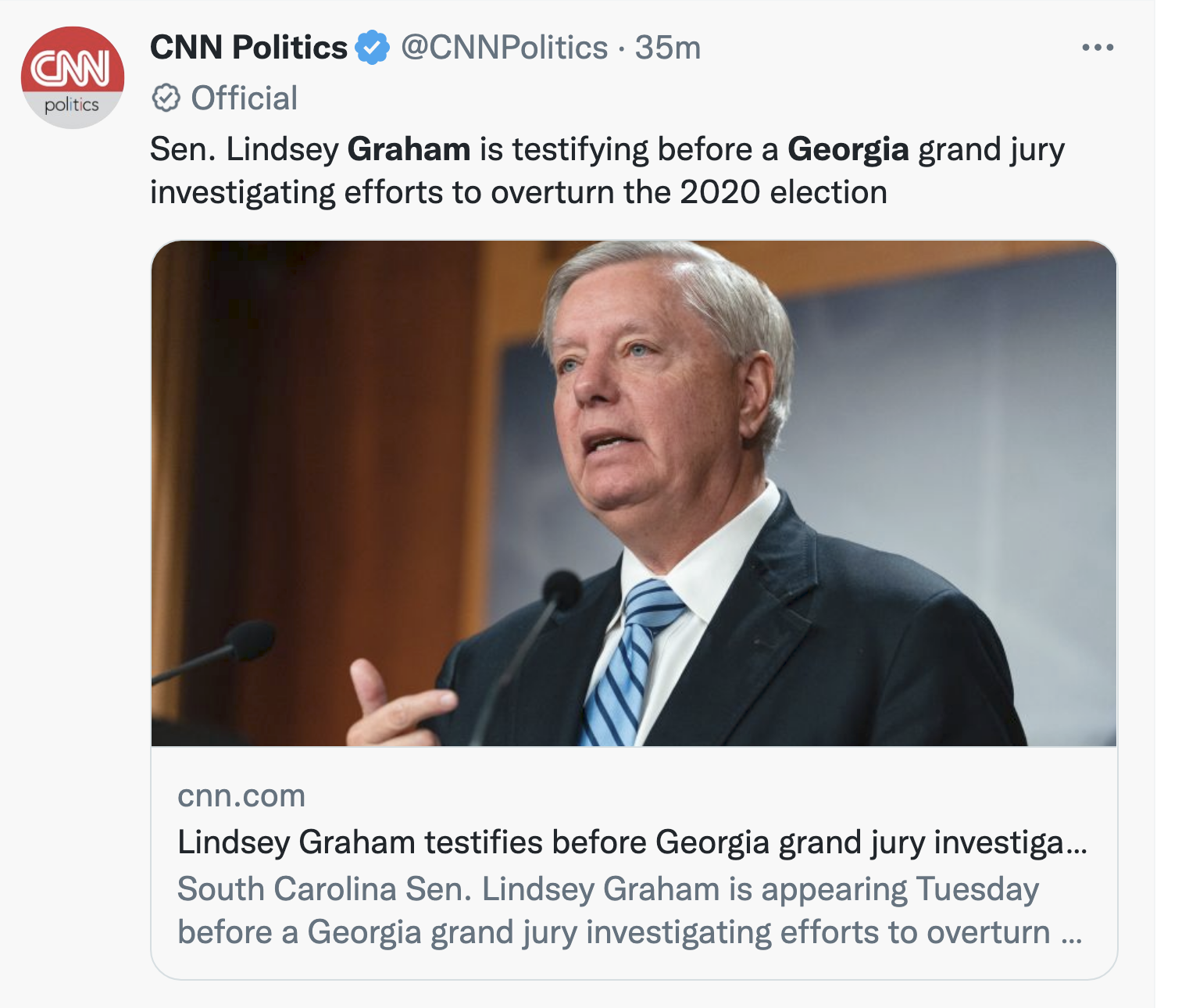Senator Lindsey Graham (R-SC) fought appearing before a Georgia special grand jury investigating the previous president for months. The South Carolina senator and Donald Trump’s sidekick has become the most well-known witness in the Georgia case thus far. Typically, the more high-profile the witness, the nearer the end of the case. And finally, the senator’s excuses ran out.
After four months of fighting, the Supreme Court refused to “block a lower court ruling” from earlier in November. Tuesday, the Republican senator testified before a grand jury at the Fulton County, Georgia courthouse regarding phone calls Graham made to state election officials directly after the 2020 presidential election. At question was whether the senator “criminally meddled” in these elections, according to The Washington Post.
District Attorney for Fulton County, Fani Willis, wanted to interview Graham over the dual phone calls he made to Georgia Secretary of State Brad Raffensperger. DA Willis has been investigating whether the previous president and friends interfered in Georgia’s 2020 presidential elections.
According to Raffensperger, the senator thought that the secretary of state should destroy any mail-in ballots collected from sites with “questionable signatures on ballots.” Following Graham’s phone call, Trump called Raffensperger to “find” 11,780, which was one vote over what the ex-president needed to overturn the state’s 2020 presidential election in his own favor. Last May, the Georgia DA impaneled a special grand jury.
Graham and other friends of the previous president, i.e. former New York Mayor Rudy Guiliani were subpoenaed. The South Carolina senator suggested that the U.S. Constitution’s debate clause prevented him from appearing before the special grand jury. The clause keeps members of Congress free from legal activity, which could interfere with their day jobs.
The president’s golfing buddy claimed that any calls Lindsey made were simply “legislative fact-finding.” As a result, Graham took his arguments all the way to the Fulton Superior Court and then beyond “three levels of the federal judiciary.”
The senator’s campaign against testifying ended last September with a judge limiting the “scope of what the special grand jury could ask him.” In addition, the South Carolina senator had the ability to object to “certain questions.” The judge said that questions about Graham’s “decision-making process as a legislator” were off-limits.
In October, the senator wanted to stop an order for him to go before a federal appeals court. But Graham lost. After that, the Supreme Court refused to take his case, according to The Atlanta Daily World.
Thus far, a number of well-known witnesses have appeared in the Georgia court. These included Georgia Governor Brian Kemp, former White House Aide Cassidy Hutchinson, and former personal attorney to the president Rudy Guiliani.
Special grand juries do not have the ability to criminally indict individuals, but AG Willis can take her case to a distinct and traditional grand jury for her criminal charges.
Indeed, the Georgia DA may even call Trump to testify. This in spite of the previous president launching his 2024 presidential campaign last week. Willis’ case was far from the only one being investigated against the ex-president.
Featured image is a screenshot via YouTube.
Christie writes Gloria Christie Reports & Three White Lions Substack newsletters and a Three White Lions podcast available on Apple, Spotify, etc. She is a political journalist for the liberal online newspaper The Bipartisan Report. Written in her own unique style with a twist of humor. Christie’s Mueller Report Adventures In Bite-Sizes a real-life compelling spy mystery (in progress). Find her here on Facebook. Or at Three White Lions her book on Amazon Kindle Vella and the Gloria Christie Three White Lions podcast on Apple, Spotify, etc.















